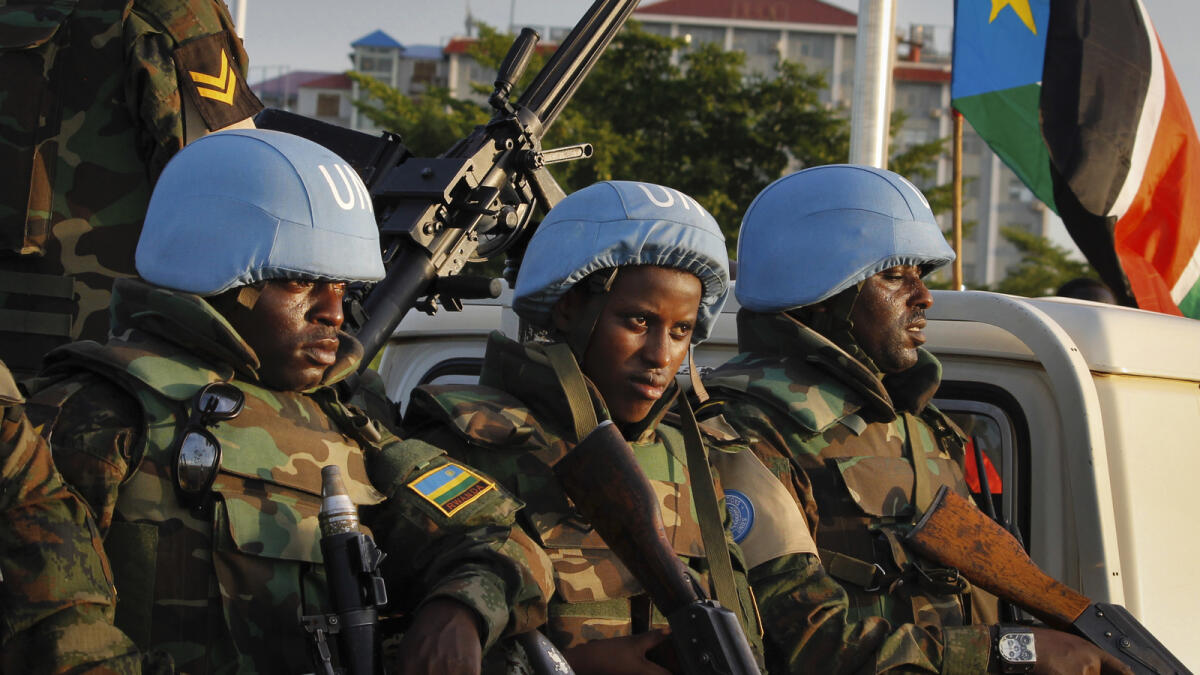
The UN special representative in Sudan says consultations are to start aimed at salvaging a fragile democratic transition and resolving a political crisis triggered by the 2021 military coup.
Volker Perthes, at a press conference in Khartoum on Monday, vowed to facilitate “indirect talks” between all sides. The initial talks will entail broad individual consultations among political and social actors along with armed and civil society groups. “We want to move quickly…We are starting this afternoon with the first group from civil society. We will have every day a mix of stakeholders we are talking to.”
“Time is precious, we know that. There’s a lot of pressure on the situation in Sudan and on us,” Perthes said. “It is time to end the violence and enter into a comprehensive consultative process.”
The planned talks have earned a mixed response by the mainstream faction of the Forces for Freedom and Change, the leading civilian pro-democracy group. “We have yet to receive any details about the UN initiative,” said Jaafar Hassan, a spokesman for the group. “We are willing to take part in the talks on condition that the purpose is to resume the democratic transition and remove the coup regime, but we are against it if these talks seek to legitimize the coup regime.”
The Sudanese Professionals Association, another prominent civilian faction, has completely rejected the UN-facilitated talks.
More than two years ago, massive anti-government demonstrations hit Sudan, mostly over the economy. The major demand was the resignation of then-President Omar al-Bashir, who was ultimately ousted through a military coup in April 2019, after ruling the country for three decades.
In August the same year, a transitional civilian-military administration was founded to run the country. However, Sudan’s military chief and de facto leader Abdel Fattah al-Burhan staged a coup on October 25 and dissolved the fragile government, putting then Prime Minister Abdalla Hamdok under house arrest and detaining other civilian leaders. The coup infuriated the Sudanese and sparked international outcry, including from the UN Security Council.
READ ALSO: Al-Quds church leader: Israeli extremists threaten Christian presence in the city
Hamdok was later released and on November 21 signed a power-sharing deal with the Burhan-led junta, according to which the former would continue his career as premier and a 2019 constitutional declaration would be the basis for a political transition. According to the deal, July 2023 was set as the date for Sudan’s first free elections since 1986.
Protest rallies against the coup have continued even after the reinstatement of Hamdok, with demonstrators demanding no military involvement at all in governance. They say the deal has simply given a cloak of legitimacy to the generals, who they accuse of trying to form an autocratic regime like the one led by Bashir.
Last week, Hamdok resigned, leaving the military fully in charge. He said Sudan was at a “dangerous crossroads threatening its very survival.” His resignation deepened uncertainty around the African country’s political future.












